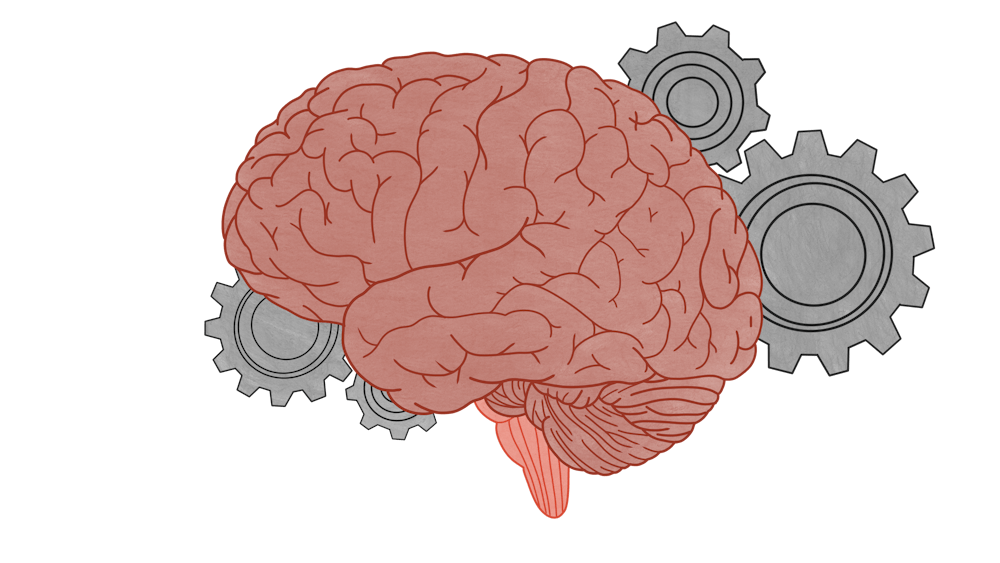College is a notoriously difficult transitional period for young adults because of a mix of increased responsibilities, rigorous studies and a sense of newfound independence. BrainSTEM is a new student organization at Auburn University that seeks to assist all neurodivergent students, who may especially struggle during this transition, with achieving their goals, while providing a community consisting of other self-identifying neurodivergent students.
Neurodiversity refers to a myriad of neurological conditions that causes a person’s mind to process information in a way which diverges from the status quo. Ranging in severity and symptoms, types of neurodivergence include ADHD, autism, dyslexia and other learning and developmental disabilities.
Ayden Kemp, PhD student in biosystems engineering and president of BrainSTEM, created the organization in the fall of 2024. As someone who has autism spectrum disorder, Kemp wanted a peer-led support group for neurodivergent students at Auburn, so they could receive mentorship, fellowship and advocacy on campus.
“Coming to Auburn, it was definitely a learning process, because you are in a very different environment than you were in high school. A lot of people are away from family and support groups. Sometimes it feels like at college, no one really cares, like your professors are just here doing their own thing,” Kemp said. “We work to connect students with resources that are on campus, as well as to help them kind of plan out what they need to do to be successful.”
All neurodivergent students, including both undergraduate and graduate students, are welcome to join BrainSTEM, because the skills taught by the club are transferable regardless of classification level. Additionally, BrainSTEM is open to students studying all disciplines, including non-STEM majors. The organization is separate from any particular Auburn University college.
“A lot of graduate students come as well, because, particularly if they’re from an international background, this can be even more overwhelming for them to kind of adjust to a new life and everything that’s going on,” Kemp said.
BrainSTEM is still a budding student organization. The club has 45 members registered on AUInvolve and typically hosts around 10 people at biweekly meetings.
Motivated by his own personal experience, Kemp’s goal is for BrainSTEM to assist neurodivergent students with “anything to help them find the best way to make their Auburn experience perfect for them,” including internships, undergraduate research and involvement with other organizations.
“I have a horrible fear of talking to professors and sending emails to people, and I hate working on group projects,” Kemp said. “We just practice a lot of those skills that are difficult.”
Peer mentorship is key for BrainSTEM’s mission. Kemp noted that while many offices on campus successfully support neurodivergent students on the administrative side, the guidance of a peer, someone who has firsthand experience, can provide reassurance and coping skills for managing their disorder.
“I think sometimes neurodivergence is less supported than other conditions, like if someone is physically impaired, then there’s a lot more assistance for that, or it’s a lot more obvious sometimes that they need assistance. It’s not that no one wants to provide the assistance, but sometimes neurodivergence is a lot more hidden,” Kemp said. “It’s really just a resource that everyone can have if they choose to use it, and I think it’s important to have that resource for those students that want to access it.”
Outside of Auburn University, BrainSTEM works with the Alabama Interagency Autism Coordinating Council (AIACC), a group of universities, medical providers, parents and people interested in supporting students with neurodivergence and autism. Through AIACC, Kemp and other BrainSTEM officers have been able to raise awareness about Auburn’s resources for neurodivergent students, reassuring concerned parents.
With only a year under its belt, BrainSTEM has already made positive impacts for its members. After a series of meetings working on resumes, elevator pitches, internships and research opportunities, three of the members that attended secured the opportunity they were pursuing.
Combining the quintessential parts of the college experience, BrainSTEM offers neurodivergent students of all ages and majors opportunities for professional development, academic support, peer-mentorship and community.
Do you like this story? The Plainsman doesn't accept money from tuition or student fees, and we don't charge a subscription fee. But you can donate to support The Plainsman.
Jennifer Santiago, sophomore double majoring in political science and history, currently serves as the Newsletter Editor for The Auburn Plainsman. Since joining The Plainsman in the fall of 2024, she has previously served as a news writer and the Lifestyle Editor.





